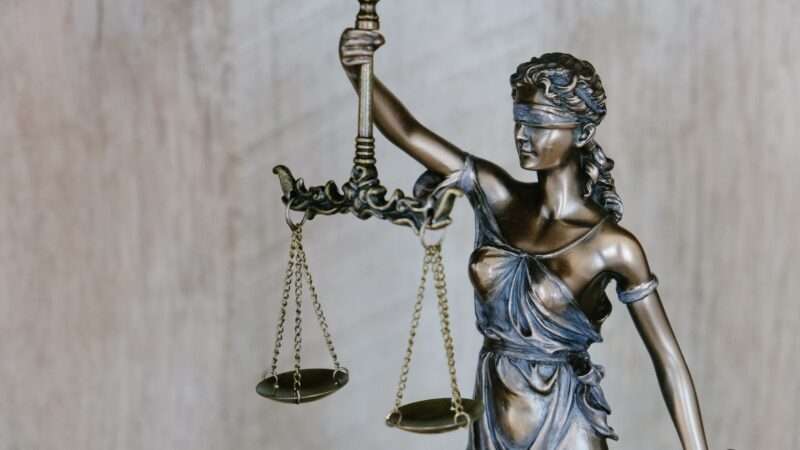
As 2022 comes to an end, what better way to appreciate the year gone by than to reminisce about the most ridiculous ways people got the First Amendment wrong during the past year? After all, the First Amendment is one of the more frequently misunderstood parts of our Constitution, often leading to incredible blunders by government officials and laypeople alike.
1. Yes, you can yell "fire" in a crowded theater.
One of the more surprising misstatements about the First Amendment this year came from Supreme Court Justice Samuel Alito. Despite sitting on the nation's highest court and being one of nine deciding voices in how the First Amendment is applied and interpreted, Alito repeated one of the most common misconceptions about the law during an October talk at the Heritage Foundation.
When offering examples of speech not protected by the First Amendment, Alito listed "extortion and threats," defamation, and "shouting 'fire' in a crowded theater."
Contrary to Alito's assertion, it is perfectly legal to shout "fire" in a crowded theater—though the idea has, for some reason, become an oft-repeated cultural maxim. The confusion comes from a now-overturned 1919 case, Schenk v. United States, in which the phrase was used as a metaphor—and not intended to create legal doctrine.
2. The Stop WOKE Act stops speech.
Many elected leaders bungled the First Amendment this year, but the dubious honor of the person who most consistently attempted to attack free speech rights in 2022 goes to Florida Gov. Ron DeSantis (R). In an attempt to prevent the teaching of critical race theory, DeSantis signed the Individual Freedom Act, better known as the Stop WOKE Act, which bans discussion of and training on certain topics relating to gender and race in Florida schools and businesses.
The law blatantly violates the First Amendment—though DeSantis himself doesn't seem to care. While the portions of the law applying to higher education and private businesses have been struck down in federal court, the law still affects primary and secondary schools—in part, leading to a spate of book bans.
3. No, it is not a First Amendment right to shut down your critics.
While DeSantis' state government shenanigans have a broader impact, plenty of local government officials have meddled with their constituents' speech rights as well. Monique Owens, the mayor of Eastpointe, Michigan, took a particularly confounding approach to the First Amendment this year, claiming to be exercising her free speech rights while shouting over citizens who criticized her during City Council meetings. For steamrolling her constituents' rights, Owens now faces a lawsuit.
4. Filming police is a First Amendment right.
Police officers were also top offenders of speech suppression this year. While 2022 has seen cases of police arresting citizens for online parody accounts and chalking anti-police messages, a particularly widespread occurrence involves police attempting to stop individuals from filming them. For example, in July, a federal court ruled in favor of a journalist who claimed police obstructed his attempts to film a DUI traffic stop—with one officer even driving his cruiser at the man and a fellow journalist. Another lawsuit was filed this year by a woman who, along with her mother, was violently arrested for filming police. Even if cops don't like it, federal courts have consistently upheld that individuals have the right under the First Amendment to film police in nondisruptive ways—meaning that retaliation in these cases is unconstitutional.
5. Heckler's vetoes are not protected speech.
Of course, a list like this wouldn't be complete without turning to campus activists. While college campuses are chock full of particularly mind-numbing misunderstandings of the First Amendment—from students and administration alike—the example that takes the cake this year comes from Yale Law School, where student activists disrupted a Federalist Society event discussing civil liberties.
As Foundation for Individual Rights and Expression (FIRE) attorney Zach Greenberg wrote, "Protesters banged on walls, stomped on the ground, chanted 'Fuck you FedSoc,' and screamed at the panelists…. The cacophony persisted for the majority of the event, and though panelists struggled to project their voices over the noise, the audience remained largely unable to hear them."
The activists' actions comprised a "heckler's veto"—a form of unprotected speech where the heckler prevents someone from exercising their free speech rights by physically preventing them from being heard. However, the activists didn't seem to care. When students were told their actions violated Yale's free expression policies, a chorus of students insisted that "This is free speech."
This year has been filled with culture war hubbub over what is and is not protected by the First Amendment. While we can disagree about what kind of speech we find appropriate and acceptable, the Constitution is clear about what speech is actually protected. Perhaps getting the First Amendment right would be a fitting New Year's resolution for Supreme Court justices and law students alike.
The post 5 Infuriating Ways People Got the First Amendment Wrong in 2022 appeared first on Reason.com.







